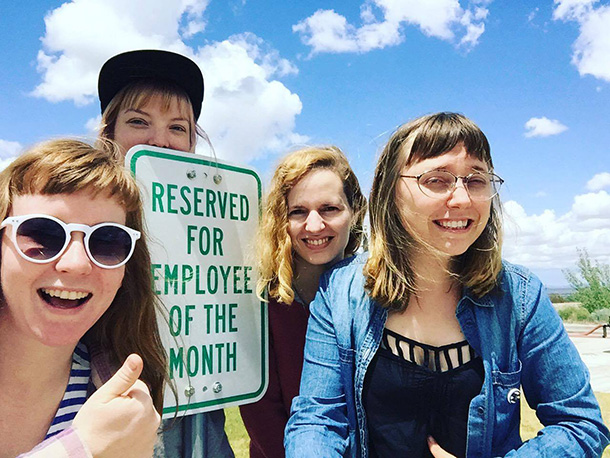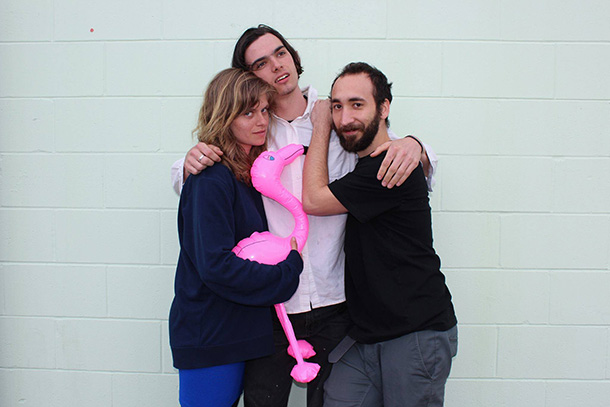Alex Cuba, born Alexis Puentes in Artemisa, Cuba, was raised by a father who taught music at a local cultural centre. Thanks to free government music lessons in the communist country, he became an exceptional guitar and bass player. On tour in Canada with his father's band in 1995, he met his future wife at a gig in Vancouver and came here for good in 1999.
Seventeen years, two Junos and four Latin Grammys later, Cuba is joining rocker Bryan Adams as the only two musicians advising a board with $15 million to spend to turn British Columbia into "Nashville of the North."
He has some strong ideas on the subject. Emigrating from a country whose government guaranteed him a music career, Cuba was initially at sea in Canada's free market creative scene. He credits both individual mentors and key moments of assistance from public culture programs for helping him figure out how to "make it" as a musician in Canada.
His chance to share those ideas came when he was invited to join Adams and eight other people knowledgeable about the music industry to advise Creative BC -- the arms-length provincial agency charged with promoting the success of creative industries like film and music -- on how to spend a planned $15 million music fund.
The fund responds to criticism from industry association Music Canada that B.C. has failed to build a "brand" identity for its music. Announcing it last year beside Michael Bublé (who provided a foreword to the critical report), Premier Christy Clark asked, "If we can become the L.A. of the world for film, why can't we become the Nashville of the world for music?"
Now Cuba and his colleagues must connect with their professional networks and offer recommendations to Creative BC about how its fund can have the most impact.
Not everyone in Vancouver's music scene is banking on Clark's optimism. Juno award winner and indie darling Dan Mangan, for one, shared his frustration at the provincial government's history of ignoring emerging artists.
"We have no program in place yet to help people record albums in this province," Mangan reportedly said at the announcement of the fund, "Which is crazy. Every province in the country has it and we don't."
He welcomed the fund, according to a Globe and Mail report, but added, "I just want to see it spread out across a number of platforms."
For his part, Cuba will be speaking up for the public support he received for professional development from his adoptive country.
He recalls a day in the early 2000s. Walking around Victoria, he noticed a poster in the window of a music store. It advertised a provincial music showcase.
The entry fee was $80. "That was the amount of money I had in my pocket for the whole week!" Cuba remembers. For no guarantee of sharing the prize.
Nonetheless, he entered and was one of 15 winners who received exposure and connections with industry professionals like Vancouver orchestral percussionist Salvador Ferreras. To this day Cuba remains grateful for the doors the showcase opened, and particularly for Ferreras' guidance.
"If it wasn't for Canada's programs and grants that support musicians," the Grammy winner says, "I wouldn't be here today."
Now in a position to offer guidance of his own, Cuba said, "I feel my role is clear: to let them hear from my own experience how beneficial it has been to me to have received support."
According to a release, Creative BC intends to focus its fund on four areas: "music company development, live music performance, tour support for B.C. artists and industry development." Cuba's liking for festivals and showcases may fit in these four pillars.
But noticing that only two of the board's 10 members are musicians -- and both now well established -- and having read the call-out in Music Canada's report to "emerging artists" who face particular challenges gaining a foothold while making ends meet in the music scene, we thought we'd ask some of those not-stars-yet how they thought $15 million might help turn the region into "Nashville of the North."
Spend to build communities?
After a decade as a steady but part-time musician, Patrick Geraghty, the lead singer and guitarist of four-person jangle rock band Gal Gracen, paid from his own pocket to make and distribute the band's 2013 Blue Hearts in Exile album on now defunct local cassette label Green Burrito, as well as an upcoming 7" EP.
But he's "never felt frustrated having to pay my own way," Geraghty said, and isn't even sure Nashville North is what B.C. should be aiming for.
"In the end, it's more that I care about people being able to interact with their communities than about Vancouver being able to compete with international standards," he said. "Money is better spent on organizations and venues and things that give people the opportunity to form communities, rather than highlighting the individuals themselves."
As a three-time judge on another grant program -- the country-wide FACTOR (Foundation Assisting Canadian Talent on Recordings) fund to help artists finance sound recording -- Geraghty said he's found that "most of the money really filters into the middle. It goes to the people who are already making money."
He hopes B.C.'s music fund reaches musicians who don't necessarily fall into this middle category.
More middle-of-the-road grants?
Adam Sharp is a guitarist and lead singer in the four-person Vancouver alt rock band Altona.
He's also the man behind one of the city's newest independent record labels, Big Smoke. And he's hoping it will gin up some local musical patriotism that might fit well with Clark's branding mission.
"Everything we release," the year-old label's website declares, "will go out with a Vancouver stamp on it."
"Something America does really well," Sharp said, "is when one band comes out of a city, the whole media focuses on the city. If we were to shine a light on some of these amazing bands, we could make something pretty new and specifically Vancouver.
"We could put Vancouver on the map as a musical hub."
In the past, Altona has received an entry-level $1,500 grant from FACTOR, and been turned down for a more substantial Juried Sound Recording award that would have paid up to $25,000 toward the production and marketing of a full-length album.
It would be helpful, Sharp said, if there were more grants between those two amounts, "Maybe something for $5,000." He imagines a range of funding levels, each with both financial assistance and industry guidance that would "illuminate a path for bands."

But he's also critical of some existing support programs that, he said, can sap artists' confidence in their abilities.
He cited the Peak Performance Project, a government-funded program in B.C. and Alberta in which unknown musical acts go through an industry "boot camp" as they vie for a $102,700 prize.
"They're trying to train you to do this professionally," Sharp said, "but I feel like what they're doing by mistake is watering down a lot of our talent."
"Rather than bands having to compete and then going through this whole boot camp rigmarole," he suggested the government develop a better system of trusting emerging artists to manage themselves, creatively and financially.
Prioritize recording?
Local three-piece punk band Swim Team is not even a year old. With a self-released EP Freedom/Constraint behind them, and festival slots in both Music Waste and Calgary's Sled Island, Swim Team is doing a lot more than merely staying afloat.
The Tyee sat down with lead vocalist and bass player Dorothy Neufeld, and guitarist Nick Short.
Asked where B.C.'s millions should go, Short immediately identified recording. "Most success comes from recordings, more than live performances," he said. "If you have good recordings of your songs [they're] going to go a long way, even if you can't play that well." Another issue for Neufeld and Short is tenuous jam space.
But besides subsidizing jam and recording costs for emerging musicians, Short suggests funding the technical professionals who support those artists -- skilled contributors like Gabriola Island-based sound engineer and producer Jordan Koop, who mastered Swim Team's EP and has worked with countless other bands around Vancouver.
They'd also like to see local radio stations like CiTR that support local talent get a boost. Neufeld hosted a show there for two years and credits the time with giving her many crucial lasting connections in Vancouver's music scene.
In the same spirit, Short says small music publications like Discorder and Beatroute should get help. "Some people are really good at publicity but a lot aren't," he said, "and that's such a help to have someone else help you spread it out."
Subsidize affordable, legal jam spaces?
Selina Crammond is a drummer and vocalist in Vancouver pop quartet Supermoon, which recently completed a two-week West Coast tour after releasing its first LP on Mint Records.
She said she's come to understand that being a DIY musician also means being your own booking manager, jam space organizer, promoter and gear slinger.
And she echoes Swim Team's complaint about the high cost of rehearsal space. After struggling to pay the $800 per month rent, and failing to work out scheduling and personality difficulties in order to share the space with other bands, Supermoon will be leaving its current jam space at the end of this month.
Crammond suggested that one priority for Creative BC's millions be subsidizing or building affordable and legal jam and venue spaces around Vancouver. She doesn't see that covered in the agency's four focus areas of music company development, live performance, tour support and general industry development.
"I didn't see anywhere in there that they were looking at space or property or any sort of infrastructure development, which is a shame," Crammond said. ![]()
Read more: Music















Tyee Commenting Guidelines
Comments that violate guidelines risk being deleted, and violations may result in a temporary or permanent user ban. Maintain the spirit of good conversation to stay in the discussion.
*Please note The Tyee is not a forum for spreading misinformation about COVID-19, denying its existence or minimizing its risk to public health.
Do:
Do not: